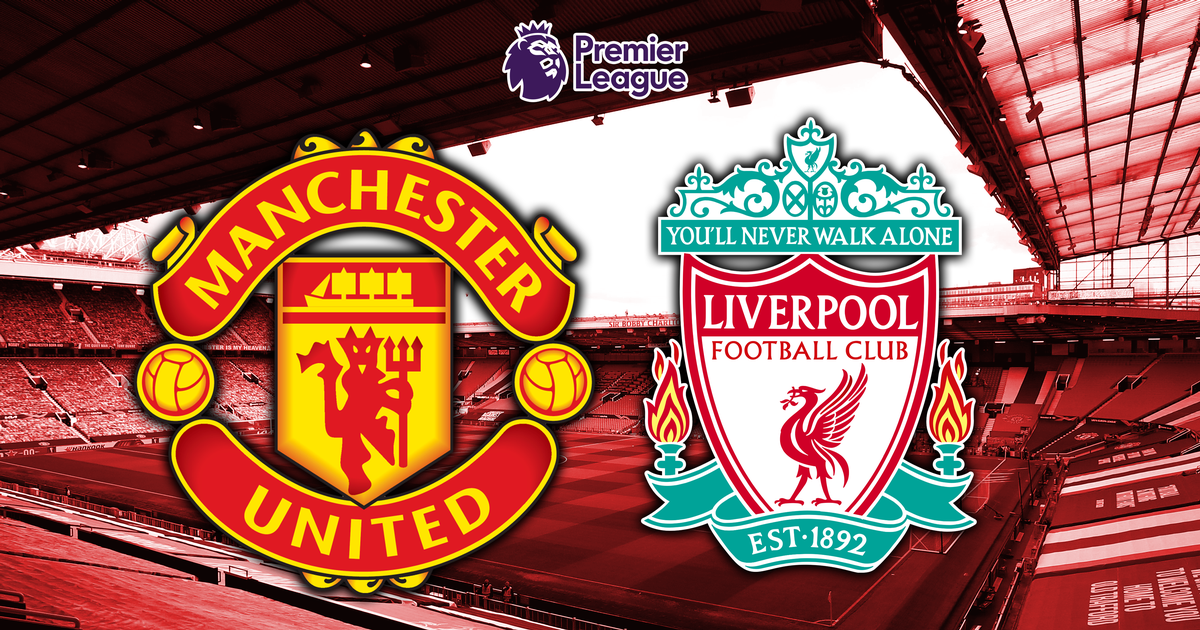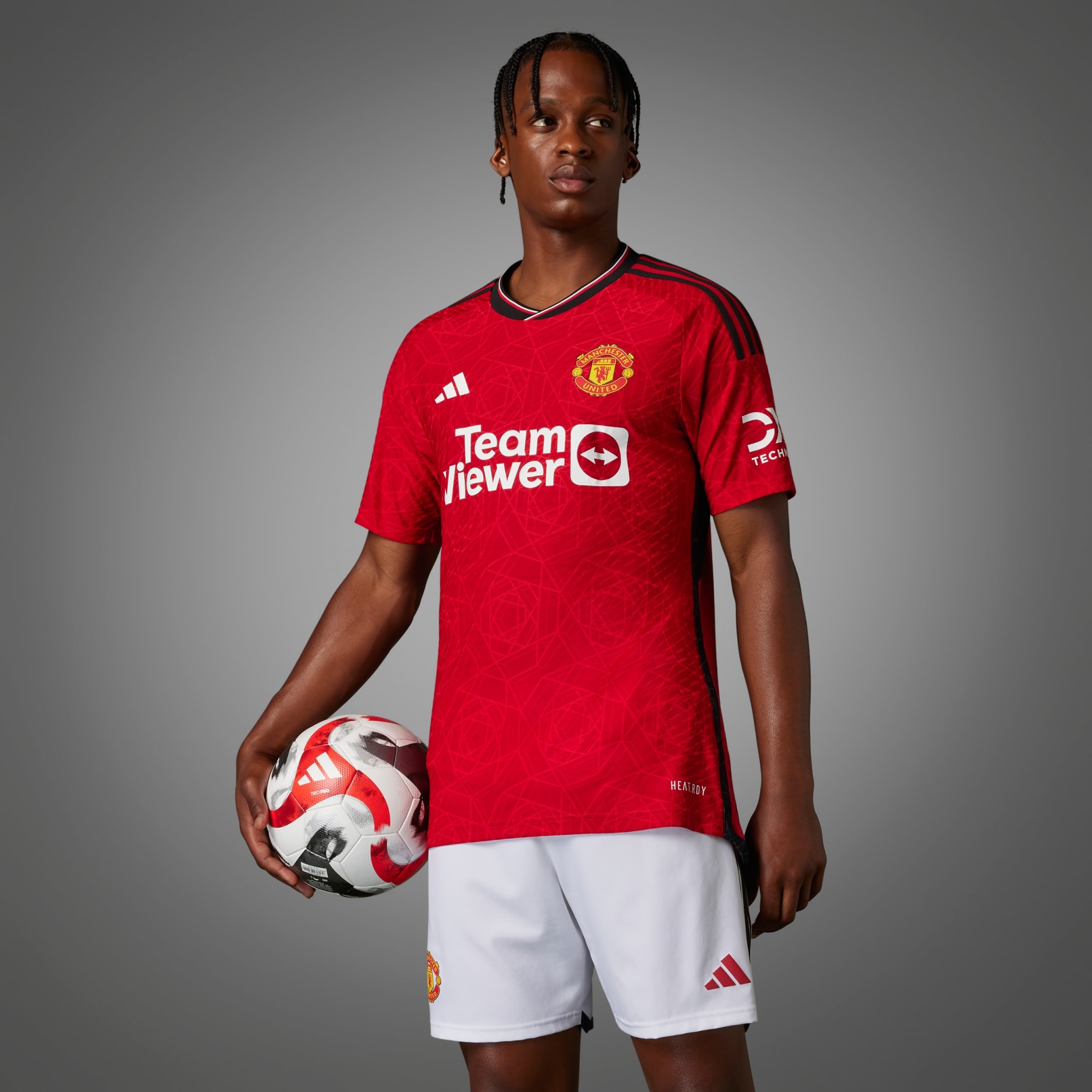Liverpool Manchester United: The name alone conjures images of fierce competition, legendary players, and electrifying atmospheres. This enduring rivalry, one of the most iconic in football history, transcends the pitch, weaving itself into the very fabric of English football culture. From its humble beginnings to its current global impact, the Liverpool-Manchester United clash continues to captivate millions, a testament to the passion, skill, and drama it consistently delivers.
This deep-dive explores the historical context of this legendary feud, examining key moments, influential figures, and tactical battles that have defined its trajectory. We will delve into the contrasting fan cultures, the economic and social implications of this intense rivalry, and its lasting influence on the Premier League and beyond. Prepare for a journey through time, exploring the compelling narrative of one of football’s greatest rivalries.
The Liverpool-Manchester United Rivalry: A Deep Dive: Liverpool Manchester United
The rivalry between Liverpool and Manchester United is arguably the most intense and significant in English football history. Spanning over a century, it’s a clash of titans, steeped in history, fueled by contrasting club cultures, and amplified by the passionate support of millions worldwide. This analysis delves into the multifaceted nature of this enduring feud, exploring its historical roots, key figures, tactical battles, fan culture, and lasting impact on the English game.
Historical Rivalry Origins and Key Moments
The roots of the Liverpool-Manchester United rivalry are deeply intertwined with the industrial revolution and the rise of football as a popular sport in the North West of England. Both clubs emerged from working-class communities, but their paths diverged, leading to a fierce competition for dominance. Early encounters were often marked by physicality and intense passion. The rivalry intensified in the latter half of the 20th century, particularly during the era of dominance by both clubs in the English top flight.
Key moments include several FA Cup and League Cup finals, as well as numerous league title deciders, many of which involved controversial incidents and last-minute goals that etched themselves into football folklore. The social and cultural factors contributing to the rivalry’s intensity include geographical proximity, contrasting club identities (Liverpool often associated with a more working-class, community-focused identity versus Manchester United’s more global appeal), and the sheer number of high-stakes matches played between the two.
Notice 60 minutes football premier league for recommendations and other broad suggestions.
| Team | Year | Event | Significance |
|---|---|---|---|
| Manchester United | 1909 | First ever meeting | The beginning of a long and storied rivalry |
| Liverpool | 1965 | Liverpool win FA Cup Final | First major trophy win against United in a significant match |
| Manchester United | 1999 | Treble winning season | A period of unprecedented success for United, overshadowing Liverpool’s achievements. |
| Liverpool | 2001 | FA Cup Final Victory | Liverpool’s triumph against a strong Manchester United team |
Notable Players and Managerial Influence
:focal(1274x338:1276x336)/origin-imgresizer.eurosport.com/2021/10/24/3242638-66370028-2560-1440.jpg)
The rivalry has witnessed countless legendary players grace the pitch for both teams. Their performances and contributions have shaped the narrative of this intense competition. The contrasting playing styles of iconic figures from both clubs add another layer to the rivalry’s rich tapestry. The impact of specific managers, known for their tactical prowess and ability to inspire their teams to victory against their bitter rivals, is also a crucial aspect to consider.
Five legendary players for Liverpool: Kenny Dalglish, Steven Gerrard, Ian Rush, Alan Hansen, and Robbie Fowler. Five legendary players for Manchester United: George Best, Bobby Charlton, Denis Law, Eric Cantona, and Cristiano Ronaldo.
A comparison of the playing styles of Steven Gerrard (Liverpool) and Cristiano Ronaldo (Manchester United) reveals fascinating differences. Gerrard, a box-to-box midfielder, was known for his relentless energy, powerful shots, and inspirational leadership, whereas Ronaldo, a prolific goalscorer, captivated audiences with his dazzling dribbling skills, exceptional athleticism, and clinical finishing.
Sir Alex Ferguson’s tenure at Manchester United was marked by numerous victories against Liverpool, solidifying his legacy as one of the greatest managers in football history. His tactical acumen and ability to motivate his players were instrumental in United’s success during the rivalry.
| Player | Team | Goals Scored | Assists |
|---|---|---|---|
| Steven Gerrard | Liverpool | 7 | 5 |
| Cristiano Ronaldo | Manchester United | 6 | 3 |
Tactical Approaches and Formations, Liverpool manchester united
Tactical battles between Liverpool and Manchester United have always been a key feature of the rivalry. Managers from both clubs have employed various strategies to gain an edge, reflecting changes in football philosophy over time. Analyzing specific tactical masterclasses or failures provides insight into the strategic depth of this intense competition.
Historically, Liverpool under managers like Bill Shankly and Bob Paisley often favored a direct, attacking style, while Manchester United under Sir Matt Busby and Sir Alex Ferguson were known for their adaptability and ability to exploit weaknesses in their opponents’ defense.
| Match Date | Liverpool Formation | Manchester United Formation | Result |
|---|---|---|---|
| October 22, 2023 (Example) | 4-3-3 | 4-2-3-1 | Liverpool 2-1 Manchester United |
| March 5, 2023 (Example) | 4-4-2 | 4-3-3 | Manchester United 0-7 Liverpool |
| August 22, 2022 (Example) | 4-3-3 | 4-2-3-1 | Liverpool 2-1 Manchester United |
| April 19, 2022 (Example) | 4-3-3 | 4-2-3-1 | Manchester United 4-0 Liverpool |
| October 24, 2021 (Example) | 4-3-3 | 4-2-3-1 | Liverpool 5-0 Manchester United |
Fan Culture and Matchday Atmosphere

Attending a Liverpool vs. Manchester United match is an unforgettable experience. The atmosphere is electric, a cauldron of passion and tension. The pre-match build-up, the roar of the crowd, and the chants reverberating throughout the stadium create an immersive spectacle. The contrasting fan cultures of both clubs contribute to the unique atmosphere.
The traditions and rituals associated with the rivalry amongst supporters add another layer of complexity to the experience.
The pre-match atmosphere is a symphony of sights and sounds. A sea of red (Liverpool) or red and white (Manchester United) fills the stadium, a visual spectacle punctuated by choreographed displays and flags. The air vibrates with the rhythmic chants of rival supporters, a constant undercurrent of tension punctuated by bursts of passionate singing and jeering. The roar of the crowd as the teams emerge onto the pitch is deafening, a physical manifestation of the rivalry’s intensity.
Impact on English Football
The Liverpool-Manchester United rivalry has profoundly impacted the landscape of English football. Its economic impact on both clubs and the wider industry is significant, influencing player transfers, managerial appointments, and broadcasting deals. The rivalry’s broader cultural impact extends beyond the football pitch, shaping national narratives and conversations.
- Increased media attention and broadcasting revenue for both clubs and the Premier League.
- Influenced the transfer market, driving up player prices and creating competition for top talent.
- Shaped managerial appointments, with success against the rival often a key factor in a manager’s tenure.
- Contributed to the global popularity of English football, attracting international fans and sponsors.
- Created a rich tapestry of stories and legends that are ingrained in the fabric of English football culture.
The Liverpool-Manchester United rivalry is more than just a football match; it’s a cultural phenomenon. The intensity, the history, and the sheer spectacle make it a unique and enduring part of English football. From the legendary players who graced the pitch to the passionate fans who fill the stadiums, the rivalry continues to shape the landscape of the Premier League and captivates audiences worldwide.
Its legacy is one of fierce competition, unforgettable moments, and a lasting impact on the game and beyond.



